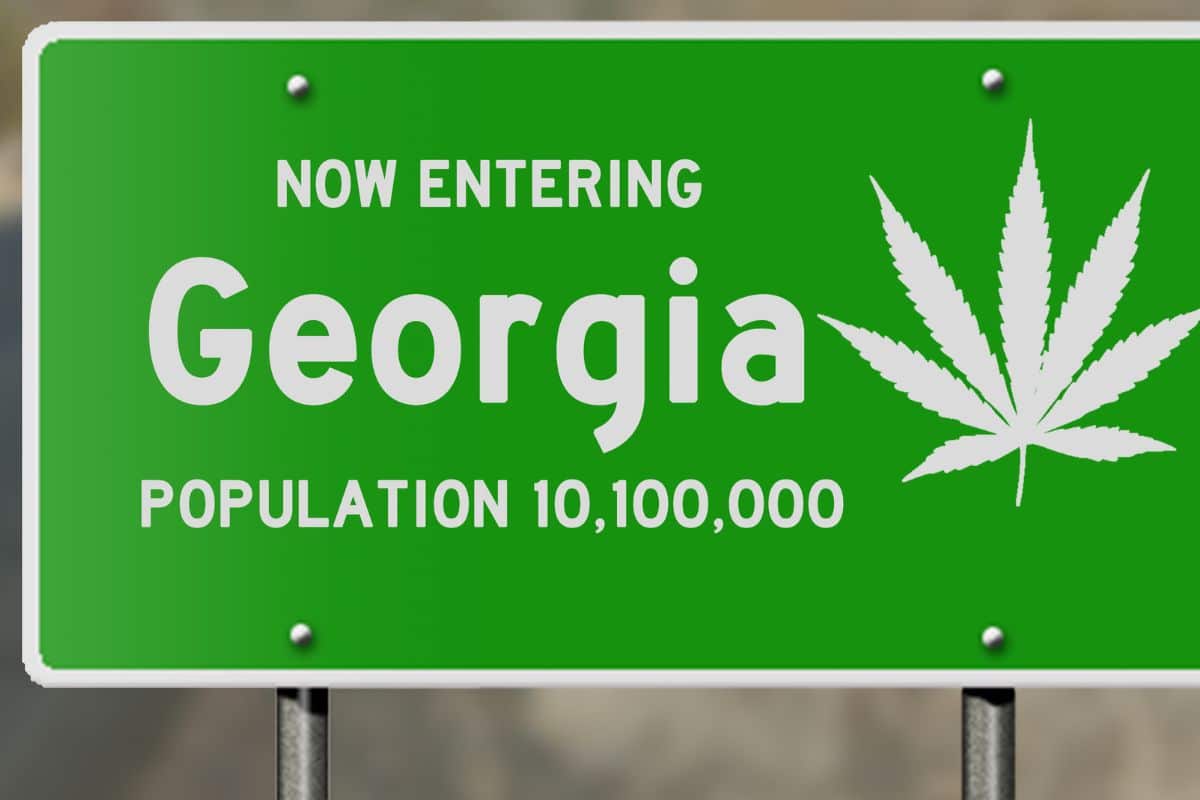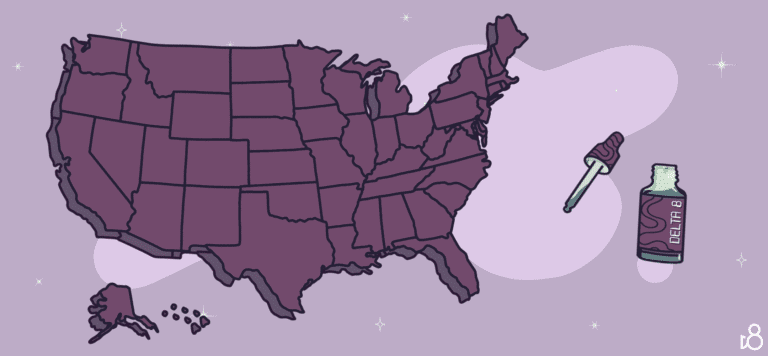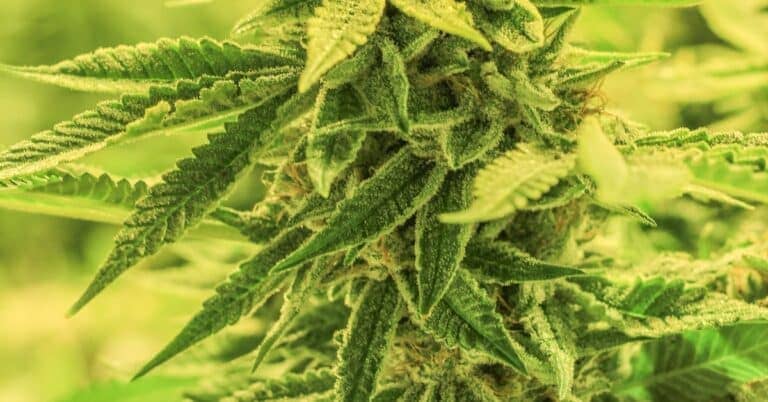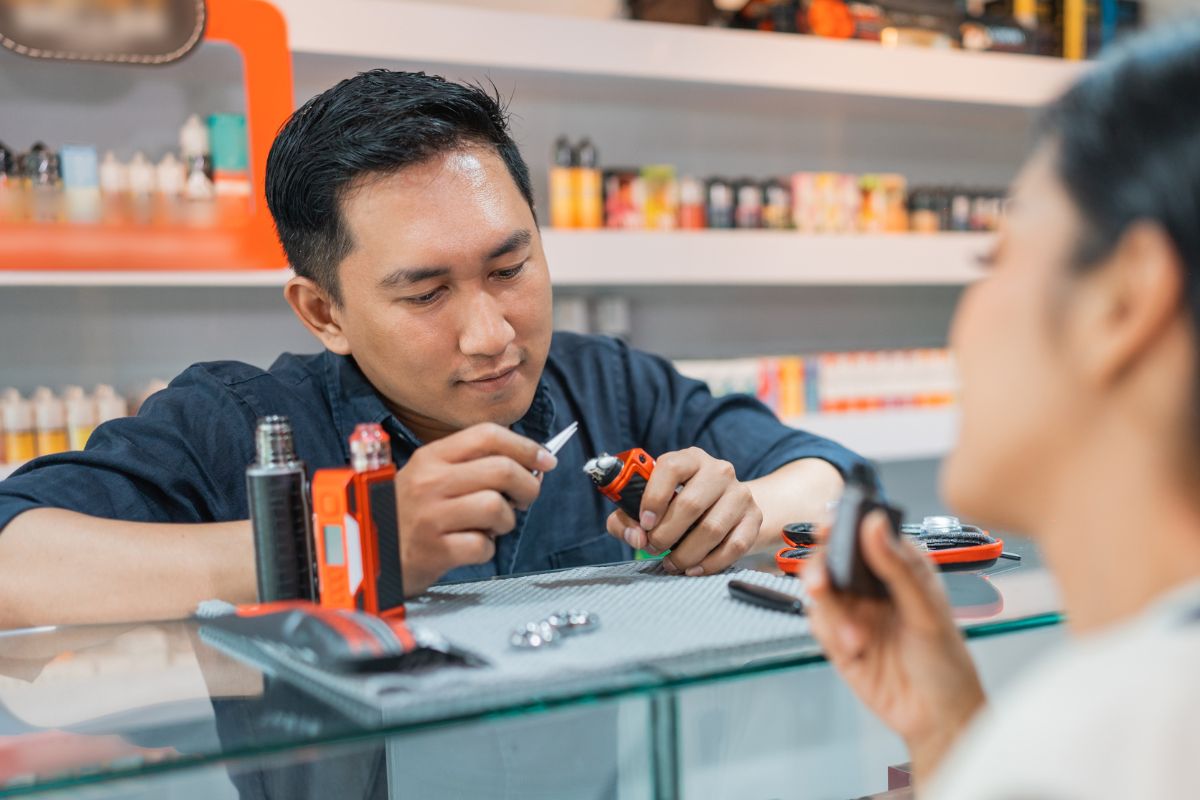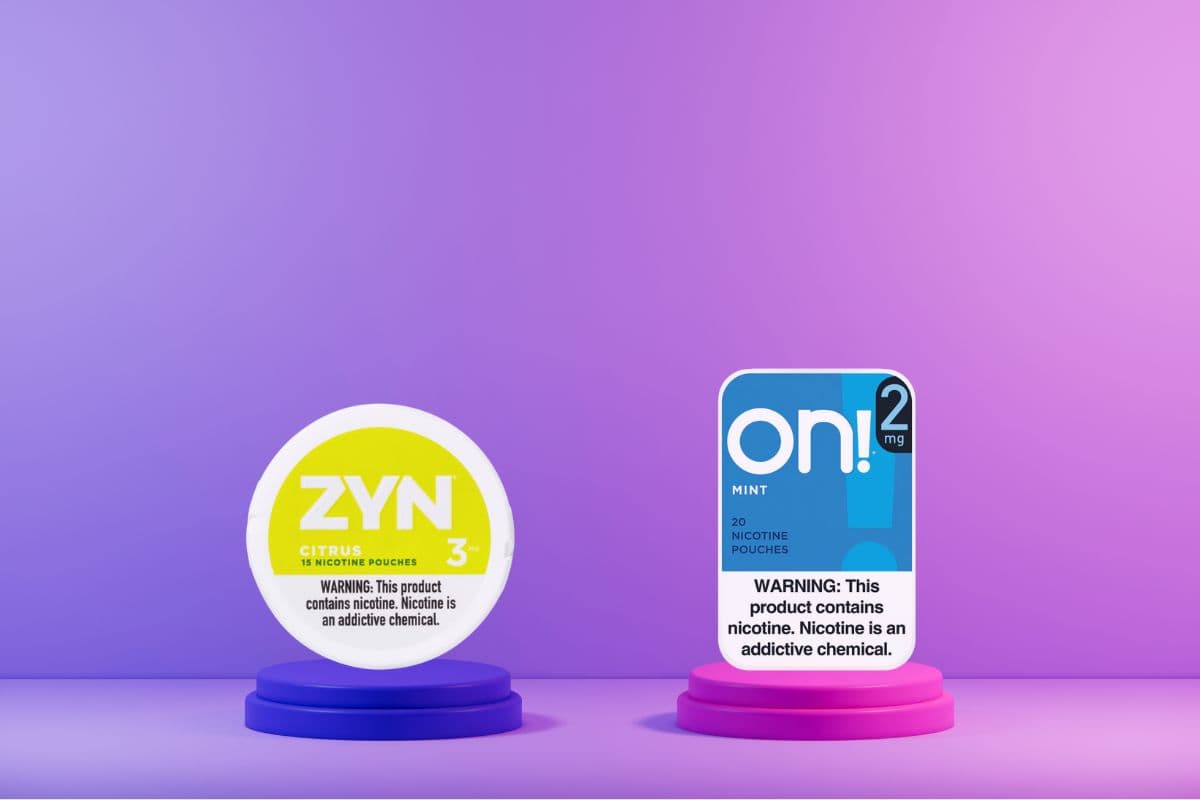Is THCP Legal in Georgia?
With the introduction of THC-P into the hemp plant market, the game has changed; you can now walk into a store and get a more potent legal cannabinoid sure to give you the therapeutic or relieving effects you want compared to the others, particularly THC.
However, because of how relatively new THC-P is in the market, the status of its legality under current state regulations and laws is an issue that bothers the minds of users over and over again. No one wants to get in trouble with state laws because they got some cannabis so, in this article, we’ll answer the question: Is THCP legal in Georgia and under federal law?
Understanding THCP
THC-P, or tetrahydrocannabiphorol, is a most intoxicating cannabinoid naturally found in the cannabis plant that has drawn considerable attention due to its heightened potency and potent psychoactive and intense effects.
THC-P’s Unique Chemical Structure
Unlike the more familiar hemp-derived THC and other hemp-derived cannabinoids, THC-P’s cannabis plant features a longer alkyl side chain that significantly increases its binding affinity to CB1 receptors in the brain.
This structural difference in the cannabis plant is believed to be what accounts for its heightened potency among hemp cannabinoids , with early research suggesting that even small doses of THC-P could produce effects that are several times stronger than those of traditional THC.
The science understanding the unique properties of this compound is still developing to shed new light on how it interacts with the human endocannabinoid system but alongside its potential as a more powerful psychoactive agent, having accurate information can help users make informed decisions about its use. THC-P’s discovery and study let us know other important considerations regarding its potential therapeutic benefits and legal status.
Recent Studies into THC-P’s Chemical Structure
Recent studies into the chemical structure of THC-P have revealed that it has a seven-carbon alkyl side chain that plays a pivotal role in its enhanced potency compared to THC.
Unlike THC’s five-carbon chain, the longer alkyl side chain in THC-P increases the molecule’s lipophilicity, which leads to stronger interactions with cannabinoid receptors, particularly the CB1 receptor in the central nervous system.
It is a structural modification that not only improves the binding affinity of THC-P but also potentially amplifies the downstream signaling effects, thereby contributing to a markedly more potent pharmacological profile. Basically, THC-P is way more potent than any other cannabinoid you can try out there.
THCP is more potent than THC, with up to 30 times the amount of effect THC has on its users. Also, a lot of people find it difficult to differentiate between Cannabidiol (CBD) and THC-P but the difference is simple – CBD is a non-psychoactive compound found in cannabis and as such, it is known for its therapeutic benefits without the high. On the other hand, THC-P, which can be sourced in thcp organic forms, has unique psychoactive effects that far surpass the effects of THC and definitely CBD.
Federal Law and Cannabis
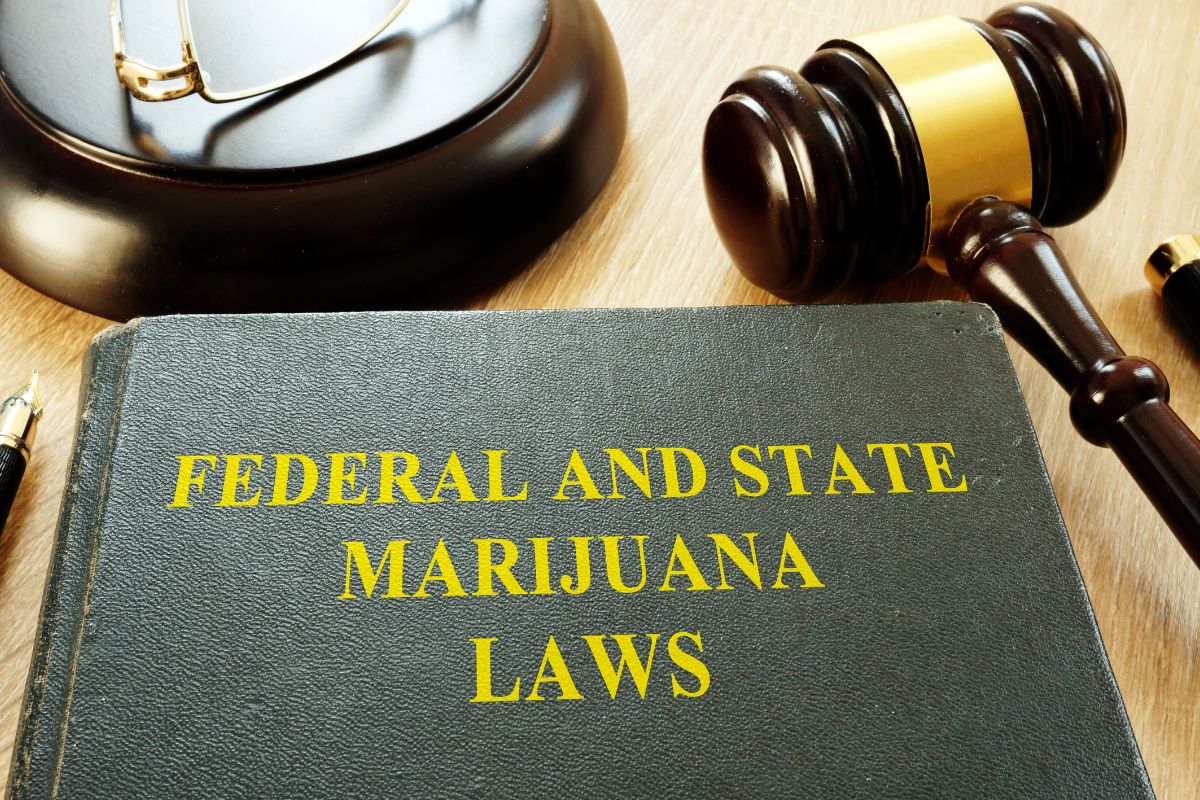
In answering the question: “Is THC-P legal?”, we have to note that because of the relative newness of THCP to the scientific literature, regulatory frameworks governing it are still evolving in many jurisdictions, which is why we need to be informed about the latest federal regulations and legal updates and safety guidelines related to THCP use. Now, let’s look at the legal status of THC-P under federal and state cannabis laws:
The 2018 Farm Bill
At this point, we’ll talk about the 2018 Farm Bill because it marked a pivotal shift in the U.S. agricultural and drug policy by legalizing hemp and its derivatives, including lesser-known hemp-derived cannabinoids such as THCP. The legislation clarified that hemp-derived compounds are federally legal as long as the final product contains less than 0.3% Delta-9 THC.
As a result, THC-P—a cannabinoid attracting interest for its potential pharmacological properties—falls under this legal framework, allowing for its production and distribution without falling under the strict local regulations that govern marijuana. So THC-P is federally legal.
Generally, at the federal level, hemp products, including those containing THC-P, are regulated by the U.S. Department of Agriculture (USDA).
The USDA regulates these products to ensure that they meet specific criteria to maintain their legal status, particularly keeping their potency levels within the prescribed limit. As such, THC-P is not considered a controlled substance under federal law and is legal federally.
Georgia Hemp Farming Act
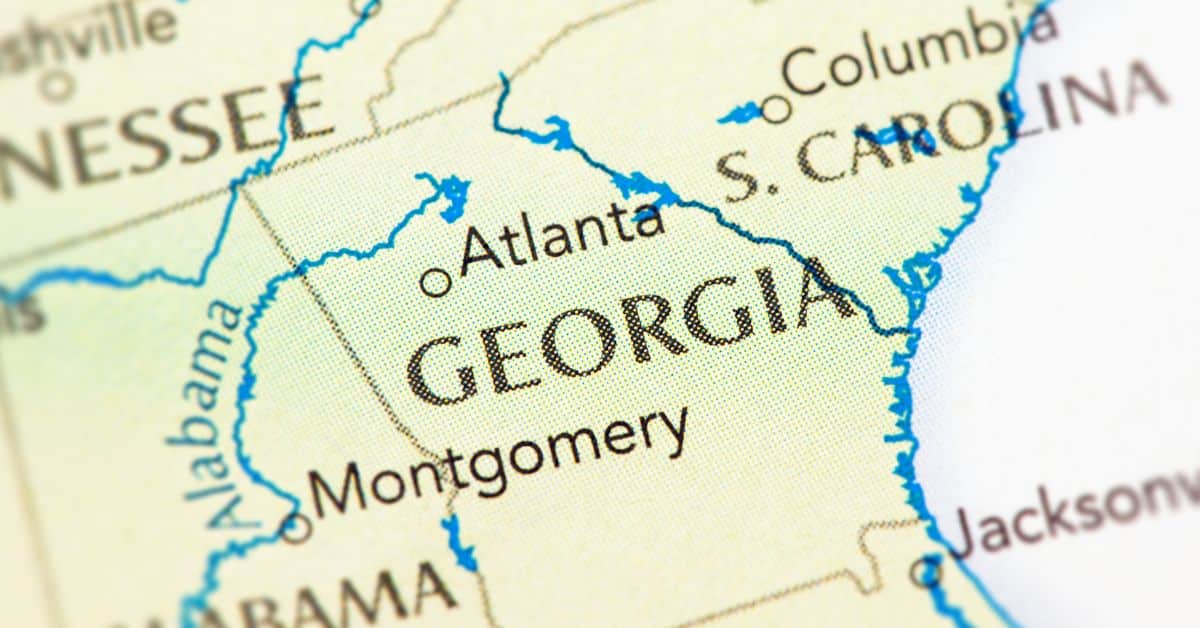
In Georgia, the legal landscape for the sale and use of hemp products—including those that can be eaten or inhaled—is regulated by the Georgia Hemp Farming Act.
The Act’s Approach to Hemp Products
This Georgia Hemp Farming Act was created to ensure that hemp and its derivatives are handled safely and responsibly across the state. Under the Act, anyone who wants to grow, manufacture, or sell consumable hemp products must first obtain a license from the state.
The law also sets strict necessary guardrails to protect Georgia’s children: it is illegal for anyone under the age of 21 to buy, possess, or use these products, and businesses are not allowed to sell them to anyone under that age.
These measures have been made to balance the growing popularity of hemp-based goods with public safety and health concerns, particularly among youth.
Georgia Law and THCP
When it comes to using THCP products from reputable sources in Georgia, you first have to understand that the use of cannabis products is heavily regulated under their state laws, but there is a specific allowance for the use of low-THC cannabis oil for certain medical conditions.
The law defines “low-THC oil” as oil that contains no more than 5% THC and an amount of cannabidiol (CBD) that is equal to or greater than the amount of THC.
Patients with qualifying conditions such as severe seizures, multiple sclerosis, Parkinson’s disease, cancer, and several others may legally possess this oil under the state’s medical cannabis program.
However, recreational use of cannabis remains illegal in Georgia, and the possession of cannabis products outside the medical cannabis framework can result in criminal penalties.
Accessing Low-THC oil
To legally access low-THC oil in Georgia, patients must first be certified by a registered physician and then apply for a Low THC Oil Registry Card through the Georgia Department of Public Health.
This card allows them to legally possess up to 20 fluid ounces of low-THC oil for therapeutic use.
However, despite having this legal pathway, the law does not permit the sale or purchase of these oils within the state itself. As a result, patients often have difficulties obtaining their medicine, including sourcing it from out-of-state vendors, which may put them at legal risk during transportation.
Then, when it comes to THCP, its legal status in Georgia is more uncertain. We know that THCP derived from hemp with less than 0.3% Delta-9 THC is federally legal under the 2018 Farm Bill, but Georgia authorities have not explicitly addressed it in legislation.
This leaves enforcement up to interpretation by local and state law enforcement agencies, which may treat THCP products with suspicion, especially if they appear similar to illegal cannabis products.
Legal THCP Products and Availability
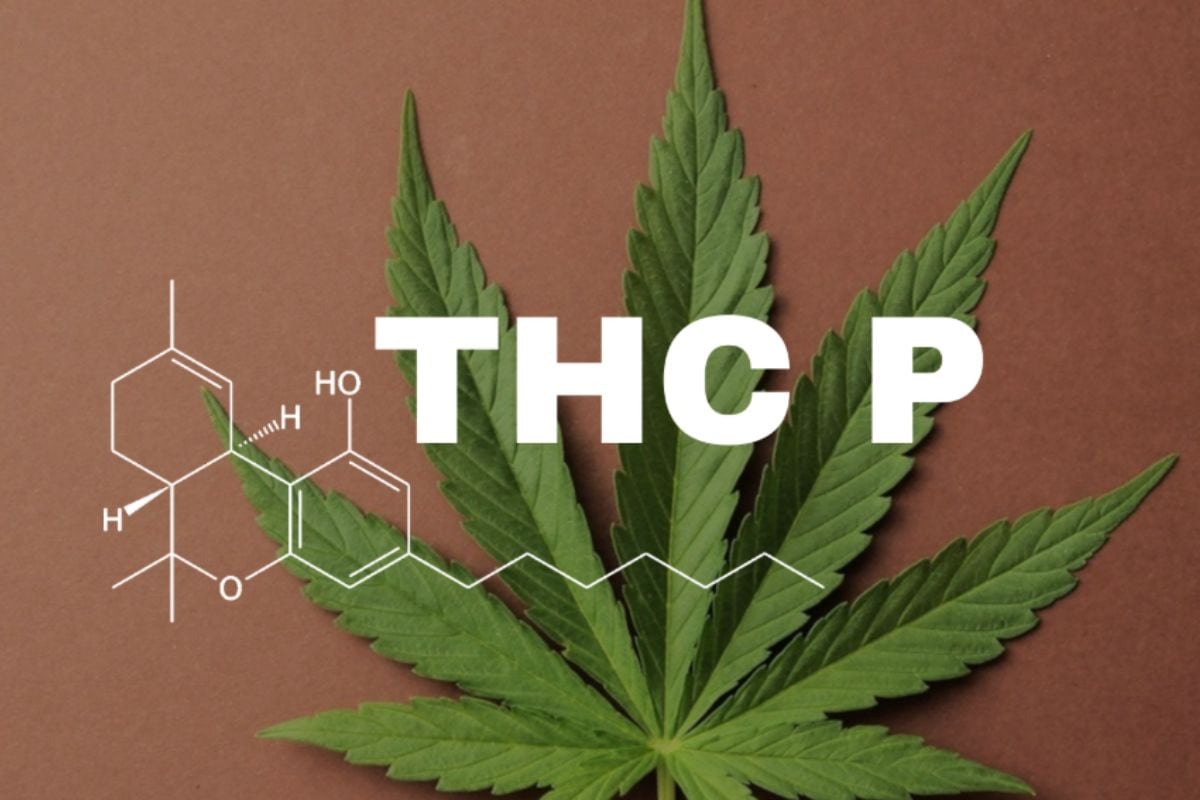
THC-P is currently gaining more popularity than ever because of companies introducing a variety of thc p products through which different THC-P user needs can be met, whether it’s relaxation, creative inspiration, or relief from everyday stress.
Premium THCP products from reputable brands are currently available in many forms such as pre-filled THC-P vape cartridges that stand out for those who enjoy a quick and robust experience, disposable devices that are pre-charged and ready for use straight out of the package, edible THCP products such as THCP gummies, chocolates, and beverages that provide a more sustained effect as the potent cannabinoid is slowly absorbed.
Law Enforcement and Drug Tests
In states where the legal status of THC-P still feels like a bit of a gray area, law enforcement agencies often take a flexible approach to THC-P cases.
This flexibility also comes from the fact that THC-P is a relatively new compound compared to its better-known cousin THC, so there isn’t a one-size-fits-all rule yet.
So law enforcement officers usually evaluate each situation on its own merits, weighing the context in which the substance was found and used before deciding on the appropriate action.
So, in many cases, possession of THC-P could end up being treated similarly to possessing THC, largely because both substances can produce similar effects and because even though THC-P has a unique chemical structure, it still has a close relationship with THC, meaning that many legal systems are inclined to interpret it under the same rules that govern traditional cannabis products.
Now, when it comes to drug testing, THC-P can present some complications as well because consuming THC-P can result in a positive result in a drug test anytime.
The gist of it is that standard drug screenings are designed to detect THC metabolites, particularly THC-COOH, which are produced when the body metabolizes marijuana-derived THC compounds, including THC-P.
Therefore, even an occasional use of THC-P can lead to detectable levels of these metabolites in your system, increasing the likelihood of a positive test result.
Detection Window
The detection window for THC-P also varies depending on several factors, such as the frequency of use, individual metabolism, and the type of drug test administered.
For instance, urine tests can detect Delta 9 THC metabolites from a few days up to several weeks after use, while hair follicle tests may reveal Delta 9 THC use for up to 90 days.
Given these variables, it’s advisable to exercise caution and stay informed, while considering abstaining from THC-P consumption if you anticipate an upcoming drug test.
Additional Resources
For more information on THCP’s legal landscape, visit the Georgia Department of Agriculture’s website.
The Georgia Department of Public Health also provides information on medical marijuana in Georgia and Georgia law on the subject.

